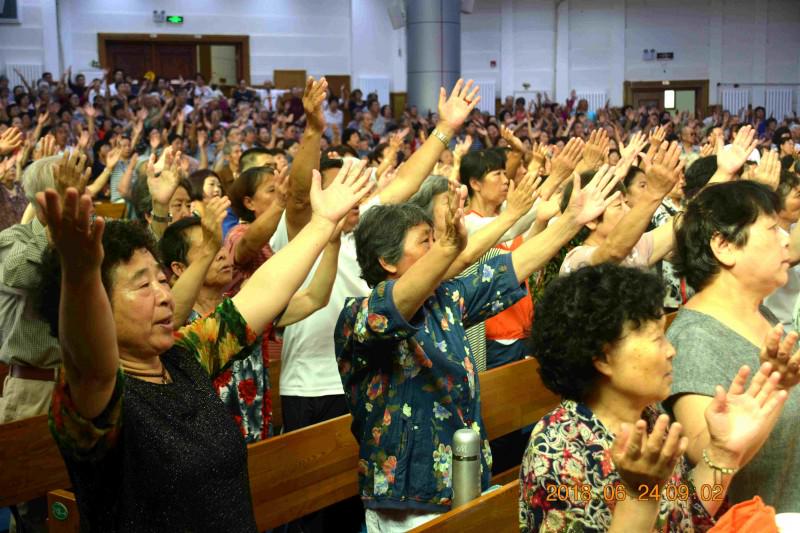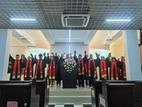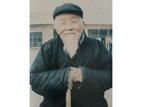Most Chinese people have the impression that the mainstream Chinese house church is full of extreme Calvinists because these churches often appear in preaching events in public squares and on the Internet they are more active in giving comments on WeChat and Weibo. In addition to that, a large amount of their literature is translated from foreign languages and their works are more widely available and frequently quoted.
However, based on my observation, I think a fact that cannot be ignored is that at least over half of the believers within the Chinese church belong to the charismatic movement, especially in the newly established urban churches. This article describes the Charismatic movement in urban churches in China. First, it is necessary to distinguish it from the traditional churches that have charismatic characteristics. Such churches are more frequent in the rural areas where their members believe in miracles and in the continuous revelation from God. They seldom read books other than the Bible. Also, they practice praying for healing. Yet this not all but only a part of their spiritual faith life. For instance, the number of people who speak in tongues is not many. The pastors neither encourage nor discourage speaking in tongues. They pray for the sick to bring about God's healing.
These new churches with charismatic "leanings" have the following characteristics:
1. Pastors teach and encourage all believers to pursue tongues and spiritual gifts. Although pastors insist that these gifts are not a must, in such churches, it is widely perceived that speaking in tongues is a privilege, a sign of loving the Lord more, and a deeper spiritual experience.
2. Healing and driving out evil spirits are the norm. During each service the congregation will practice casting out demons from the sick and the poor. And there are believers who have all kinds of symptoms who approach their pastors for healing and deliverance. The usual process is through speaking in tongues, and in the name of Jesus, believers will fall on the ground rolling around with twisted contortion.
3. Such churches believe that inner healing is necessary because the soul of an individual has been fragmented due to some experience in the past especially a childhood experiences which has created the hindrance in their cognitive thinking and character. Therefore inner healing is needed.
4. Worship and praise has a more contemporary style. Every such church is equipped with a keyboard and other musical instruments as well as worship bands. The leading vocalists are all attractive females who make the worship experience exciting and energetic. Songs chosen are more contemporary and upbeat with catchy melodies.
5. These churches usually rent open rooms in upscale neighborhoods with modern amenities.
6. They are not interested in politics and never talk or care about controversial topics yet they pray for national leaders and expect their country to improve.
7. They are active in evangelism. They hope to win many souls to the Lord and are deeply concerned about evangelism, looking for evangelism opportunities particularly in Central and Southeast Asia. They are fond of topics regarding bringing the Gospel back to Jerusalem.
8. These churches are passionate about preaching the Gospel. In cities, believers carry Gospel tracts with them to share the Gospel and pray for passers-by. They are happy to hear of decisions to follow Jesus.
9. The majority of these believers are white-collar students and working-class folks. They have a fixed schedule so as to be able to take a break on Sunday. They have no friends and enjoy going to church.
10. They participate in a wide range of social media activities and frequently hold special cross-church charismatic events. Each pastor has charismatic characteristics, but many churches involve a few pastors who are empowered and anointed to hold special events and carry them out on a regular basis.
11. They urge new apostolic movements and think that the New Testament apostolic era extends until now. They seek that each believer be open to and pray for the power of God manifested through miracles.
A pastor from Xiping, Henan province, by the name of WANG Li also having the spiritual name "New Mission", has now established a church on the outskirts of Beijing. By describing the process of how he built the church, I will analyze why the modern charismatic church attracts the urban working class.
The parents of WANG are local Christians. Having been raised in the Three-Self Church, WANG has been passionate about God's word and listening to His voice. He had a small business in Xiping and got to know a non-Christian woman. She was pretty and fashionable and he insisted on marrying her. This woman was not opposed to his faith, but his parents were against their marriage because the rule of the church then was that both parties had to be Christians in order to hold a Chrisitan wedding in the church and have it performed by a pastor. The woman wore a mini-skirt and high heel shoes and the parents' son must not have been able to resist the temptation so that it became easier for them to have sex before marriage.
However, this time the "obedient" WANG chose to be his own master and made up his mind to marry her. His parents were considerate and understanding and paid for their son's wedding. However, in their mind, they still had regrets that their son did not marry a Christian woman and so could not have a wedding in a church in accordance with Christian custom.
After the wedding, WANG stopped going to church because the church had refused to hold the wedding for him. The couple opened a cosmetic shop and enjoyed a happy life. Later on, WANG expanded his business, spending most of his time building business links and management and having increasingly less time to see his wife. Eventually, he found out his wife was unfaithful to him and so chose to divorce her, resulting in him having nothing.
After the divorce, with seemingly everything against him, WANG was in no mood for working. At that time the local Three-Self church held a camp and WANG attended it so as to get to know a new coming pastor who was of ethnic Korean descent. The pastor introduced him to a Beijing seminary.
On the outskirts of Beijing in a residential area, the seminary rented out 14 apartments to students of different levels and from different places to live and study. The seminary was established by a charismatic church from South Korean.
All his teachers were from South Korea and had a very significant pastoral experience. One of them, pastor Li, left a deep impression upon him. Pastor Li, who had graduated with a Ph.D. from Yonsei University in Seoul, made WANG feel optimistic and have positive theological energy. WANG learned to compliment and appreciate others. Another teacher, pastor Quan, a retired army chaplain, had a resonant voice when praying to and praising God. His prayers were deep and very moving. WANG was impressed by this. This pastor told WANG that his prayer should be imaginative and that a broken spirit because of the hardships of life would result in a profound and passionate love for the Lord and empathy for others. In addition, prayer should be crafted so as to be contemplative, to be descriptive of the scenery in its overwhelming grandeur. He should also consider his vocal range and tone of voice in choosing the wording and length of sentences. Moreover, although one should be empathetic, one cannot be too deeply empathetic as it should be known that self, God, and others are in a tripartite relationship. When he prays he should leave an impression of the three parties being present together.
The seminary was formed through co-funding by a church group. Once, an elder named JIN Yongkui from a church in Seoul came to visit the seminary. He was able to speak a dozen different languages and taught in Beijing for three days on predestination. WANG thought he was very weird. Yet WANG's began recognizing that elder JIN had surpassed all the other pastors.
Three years later, WANG graduated from the seminary. He chose to stay in Beijing to establish a church on the outskirts of the city because, while seminary, he had met a beautiful Uyghur woman who eventually became his second wife. A pastor from Chunchuan helped WANG rent an apartment near the North China Institute of Science and Technology in Hebei province. It was for building a church. By this time WANG's mind was set on truly reforming himself for the Lord.
In the very beginning, the bookshelves in his church were full of translated books from more traditional sources, particularly books such as The Christian's Reasonable Service and Our Reasonable Faith. WANG thought that his church was not a traditional, anti-intellectual one but one that was directly connected with the mainstream and most significant reformed churches, a church with historical heritage. However, the earliest believers in his church were stubbornly simple. They preferred the Heidelberg Catechism and the Westminster Catechism, being zealous about recognizing true or false churches and thereby became increasingly more extreme. It was very often suggested that the organ in the church be removed, Psalms should be chanted without any music and there should be no air conditioning in the summer. A microphone should not be used as they thought that the words of the Lord needed no modification and distortion occurred because of modern technology. His church was apparently stuck on literal meanings in the Bible and became more and more extreme.
As time went by his church did not increase in numbers except for a few elderly ladies who were looking for a nearby place to worship. Other believers left either because they felt his church was too extreme or that it was not authentic, not truly a reformed church in spirit.
WANG started to be anxious since his mother-in-law chose to go to another church out of a sense of God being with her at this other church. The church she attended was charismatic and begun by South Korean evangelists. The atmosphere and quality there seemed strong. WANG decided to make the church more charismatic in its theology and practice as he was facing great pressure and needed quick success. He felt that after his success his church might turn into a God-centred reformed one, but the present believers were of low quality simply enjoying the message of the Gospel and charismatic experience.
He purchased drum kits, guitars, a bass and high-end musical equipment. By cooperating with other nearby churches, he trained his worshipping teams. He recruited students from the nearby university and gave them free instrument lessons and practice time during the Sunday services. As a result, two dozens of students came with the purpose of learning to play an instrument. In the end, one third of them became Christians and took charge of leading worship.
WANG provided two Jinbei mini-buses for commuters from the Beijing CBD coming to his church on the outskirts, shuttling working people several times every day for a small fee. In this way, there were a dozen people who would have a chance to hear the Gospel at his church every week. Finally, the church had over a hundred people attending. No matter what the situation, WANG encouraged and praised these white-collar folk, never blaming them or being negative. He helped them with their daily lives as well. WANG began praying for and seeing healing as well doing deliverance amongst believers. His words began to become known.
At the time of this writing, WANG told me that he had changed his name to New Mission pastor. He said, for pastors, the charismatic churches are the simplest and their sermons the most well organized. For more liberal churches, they needed continued study. For the Charismatics, however, only a consensus was needed between the pastor and the congregation. Most white-collar folks needed relief from their stresses, a chance to make friends, and an expectation of not being made to feel guilty. Only the Charismatics do this.
Conclusion:
My findings from the interviews and observations are that there is a large portion of charismatic Christians within the Chinese Church. It is not the traditional reformed nor Liberal tradition, but rather the Charismatic that the younger generation prefers. They may be satisfied and feel valued during the services as well as not feel criticized when fellowshipping with other believers who are all positive. Pastors in such churches may become authoritative. Many believers who remain are willing to be loyal to their pastors, reveal their inner thoughts to them, and feel excited and fulfilled.
Since Charismatics are not interested in current affairs, according to the Internet, it is hard to know how much influence they have. However, in South Korea, Japan, Taiwan, Singapore and Malaysia, nearly all Chinese churches have become charismatic in order to best connect with the larger mainstream society. It may also help a church to quickly become popular and successful. The target group of Charismatics is mostly the white-collar and middle class. This is also a reason why the development of the Charismatic Church cannot be ignored.
- Translated by Charlie Li












